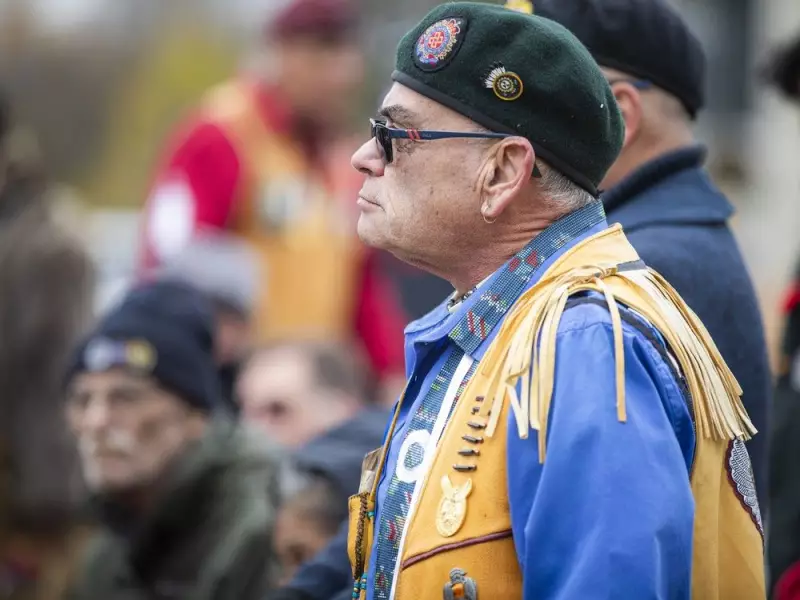
On a cold and windy Saturday, a poignant ceremony at the Remembrance Park in Manotick served as a powerful tribute to the often-overlooked sacrifices of Indigenous veterans. The event, held around Indigenous Veteran's Day on November 8, brought together dozens of veterans, their families, and community leaders to honour a legacy of service marked by both bravery and subsequent hardship.
A Battle That Continued at Home
Jean Verdon, a Métis veteran who served during the Cold War, addressed the crowd, stating that for many Indigenous soldiers, the battle did not end when they returned home. He highlighted the stark reality that many faced discrimination and had their identities improperly recorded by the very nation they volunteered to defend. Despite this, the desire to serve was deeply rooted.
Verdon explained that Métis people were often inspired to enlist by the stories of historic figures like Gabriel Dumont and Louis Riel. The Métis people have a long history of service, grounded in responsibility, community, family and homeland, he told the audience. When the First World War began, many Indigenous people volunteered, serving as scouts, runners, and infantry across Europe.
National Recognition for Wartime Contributions
Canada officially marks Indigenous Veteran's Day on November 8, a day dedicated to highlighting the contributions and sacrifices of First Nations, Métis, and Inuit soldiers. This national day of recognition began as a grassroots movement in Winnipeg in 1993 and has since spread across the country.
The ceremony was organized by the Royal Canadian Legion Branch 314, also known as the Manotick Legion, and was the first of its kind at the Manotick Cenotaph. Attendees, undeterred by the weather, included Carleton MP Bruce Fanjoy, Carleton MPP George Darouze, and Rideau-Jock Coun. David Brown. The gathering was a visible symbol of respect, with many veterans wearing their old uniforms adorned with medals. One woman powerfully combined her military heritage with her cultural identity by wearing a ribbon skirt with her uniform.
Legacy of Inequality and a Path to Remembrance
Annie Smith St. Georges, an Algonquin Traditional Elder, reinforced the historical injustices faced by returning Indigenous soldiers. She noted that they were largely denied the same rights and benefits afforded to non-Indigenous veterans, including land grants, low-interest loans, and educational support.
Verdon's speech served as a somber reminder of this unequal treatment. Today, we honour all Aboriginals who served, including those whose names and whose stories were lost due to incomplete records, he said. We remember those who came home changed, those who carried quiet burdens and those who were denied equal access to land benefits and recognition. The ceremony stood as a crucial step in correcting the historical record and ensuring these stories of sacrifice are never forgotten.





